If you’re like most pet owners, you probably had your dog neutered as soon as possible.
It’s a common procedure that is thought to help control the pet population and can also prevent some health problems.
However, did you know that there are some strange things that can happen to your dog after they’re neutered?
In this blog post, we will discuss eight of the most common strange behaviors after neutering your dog.
- Key Takeaway
- What Is Neutering?
- 8 Strange Behaviors After Neutering Your Dog
- How Long After Neutering Will I Start To See Behavioral Changes In My Dog?
- What Should I Watch After My Dog Gets Neutered?
- Do Dogs Still Have Hormonal Changes After Being Spayed?
- FAQs
- Q: How does neutering affect a male dog’s behavior?
- Q: Are there any behavioral changes that I should expect after neutering my dog?
- Q: Can neutering cause aggression in dogs?
- Q: What are the benefits of neutering my dog?
- Q: Can neutering affect my female dog’s behavior?
- Q: How does neutering affect a male dog’s testosterone levels?
- Q: Can neutering my dog change his personality?
- Conclusion and final thoughts
Key Takeaway
- Neutering is a surgical procedure performed on male animals to remove their testicles, which results in infertility and can have other health benefits.
- Male dogs may experience an increase in aggression, separation anxiety, or other changes in behavior after neutering.
What Is Neutering?
Neutering is a surgical procedure performed on male animals to remove their testicles, which results in infertility and can have other health benefits.
As a veterinarian, I often recommend neutering male animals as it can help to prevent unwanted pregnancies, reduce unwanted behaviors like aggression and roaming, and lower the risk of certain health problems like testicular cancer and prostate disease.
The surgery is typically performed under general anesthesia and involves removing both testicles through a small incision in the scrotum.
Recovery time is relatively short and most animals are able to resume normal activities within a few days. While there are risks associated with any surgical procedure, the benefits of neutering generally outweigh the risks for most animals.
It is important to discuss the decision to neuter with your veterinarian and make an informed choice based on the individual needs of your pet.
8 Strange Behaviors After Neutering Your Dog
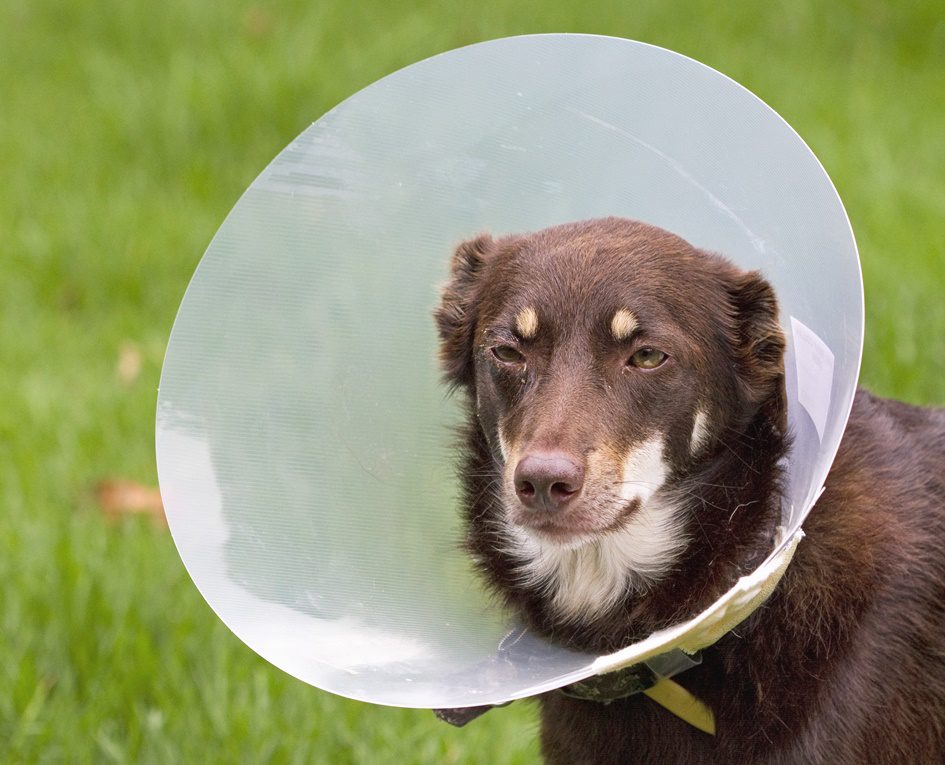
Every dog reacts differently to neutering surgery. While most dogs will recover fast and without any side effects, here are 8 strange behaviors that can appear in your dog after neutering.
1. Increased aggression after neutering
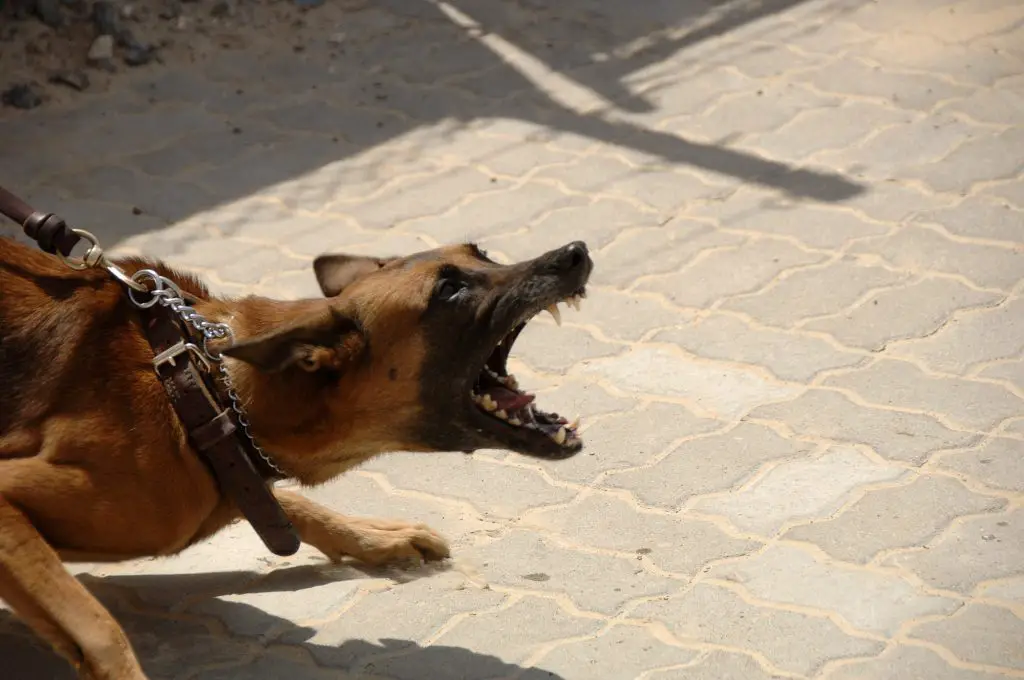
As any pet owner knows, dogs can be fiercely protective of their homes and families. However, neutering – the surgical removal of a dog’s testicles – has been linked to increased aggression in some dogs.
This is one of the many strange behaviors a dog can show after neutering. The reasons for this are not fully understood, but it is thought that the hormones released during puberty play a role in shaping a dog’s personality. Without these hormones, some dogs become more aggressive, while others may become more withdrawn.
Neutering may also help to reduce territorial instinct and make a dog less likely to mark its territory with urine. In general, neutered dogs are less likely to roam and are less likely to be involved in fights with other dogs. However, owners should be aware of the potential risks before making the decision to neuter their pets.
There are some things you can do to fix aggression in your neutered dog. You need to help your dog feel more comfortable around other dogs and people.
For example, you can continue to socialize your dog by taking him to the park or on walks in the neighborhood. You can also enroll him in an obedience class.
He can learn to interact with other dogs in a non-aggressive way. With time and patience, you can help your neutered dog become a happier, well-adjusted companion.
2. Depression after neutering
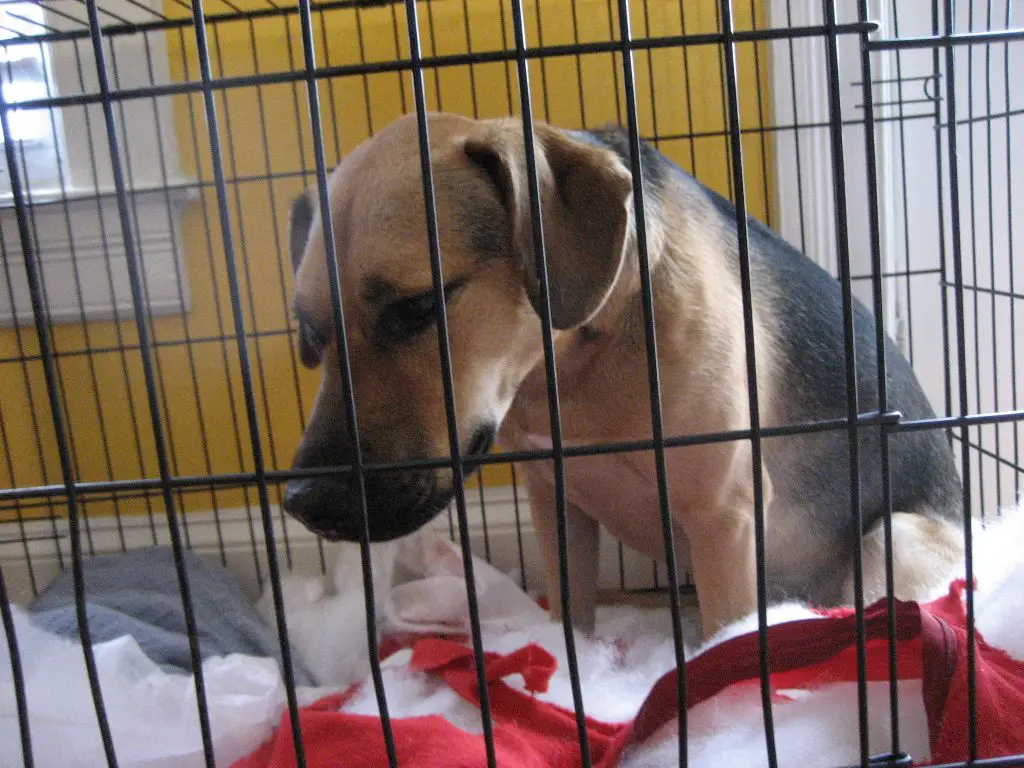
Depression is a common emotional reaction to neutering in dogs. While the full extent of the problem is not known, it is believed that the loss of hormones may contribute to feelings of sadness and lethargy.
In addition, the change in routine can be disruptive for some dogs, who may no longer have a regular place in the pack hierarchy. As a result, they may become withdrawn and less interested in playing or going for walks.
If your dog has been neutered and is exhibiting signs of depression, there are a few things you can do to help. First, try to stick to their regular routine as much as possible.
This will provide them with a sense of stability and predictability. Secondly, make sure to provide plenty of opportunities for exercise and play. This will help release any pent-up energy and promote positive social interaction.
Finally, give your dog extra attention and affection. This will let them know that they are still loved and valued despite the changes in their life. With a little time and patience, most dogs will adjust to their new reality and emerge from their depression.
3. Anxiety after neutering
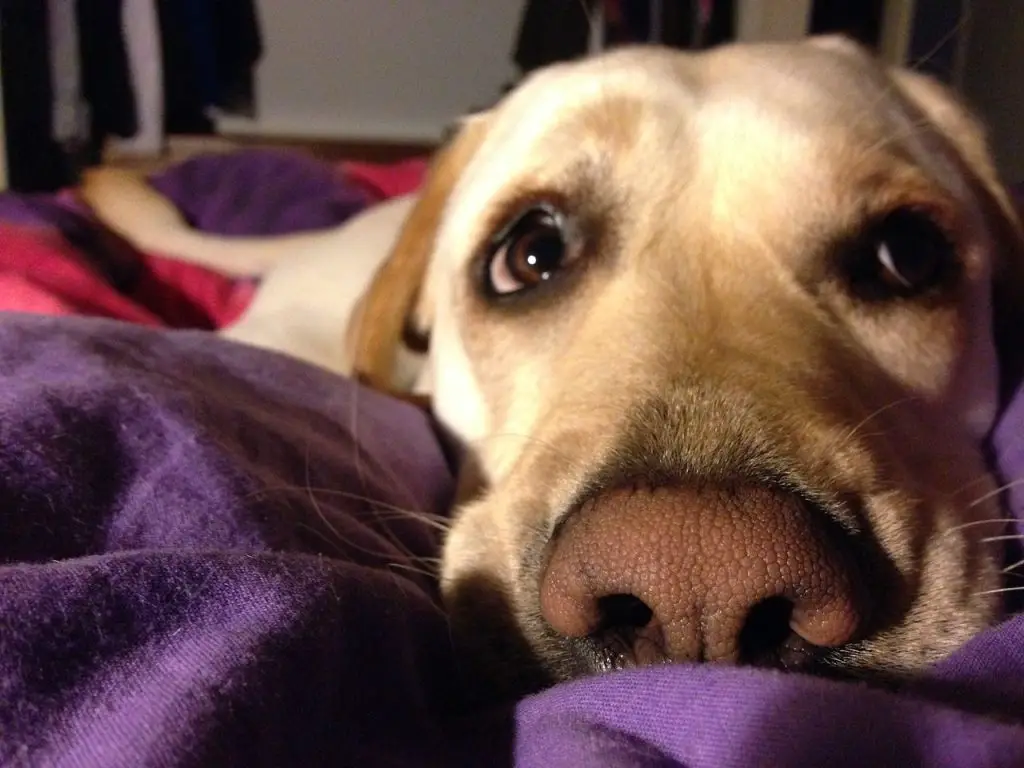
Neutering is a surgical procedure that removes an animal’s reproductive organs.
It is a common practice for dogs. It can have a number of benefits, such as reducing aggression and preventing unwanted pregnancies. However, neutering can also cause anxiety in some dogs. The change in hormone levels can be disruptive, and the surgery itself can be stressful.
As a result, it is important to be aware of the potential for anxiety when making the decision to neuter your dog. If you are concerned about your dog’s emotional well-being, you may want to speak to your veterinarian about alternative options.
A great way to help an anxious dog is through training and behavior modification. This can help them learn how to cope with their anxiety in a healthy way.
For example, teaching your dog to “speak” or “quiet” on cue can help them calm down when they’re feeling anxious. If your dog is afraid of being left alone, you can desensitize them to it by gradually increasing the amount of time they’re left alone, starting with just a few minutes at a time.
There are also many products available that can help an anxious dog, such as calming collars and supplements. These can be helpful in reducing your dog’s anxiety levels. But, it’s important to talk to your veterinarian before using any products, as some may not be suitable for all dogs.
4. Growling after neutering

After a dog is neutered, his body goes through many changes. His hormone levels drop significantly, which can lead to a decrease in appetite and an increase in thirst.
In some dogs, this can also lead to an increase in growling. The reason for this is not fully understood, but it is believed that the change in hormone levels may cause some dogs to become more anxious or agitated.
If your dog begins to growl more after being neutered, it is important to consult with your veterinarian to rule out any underlying medical conditions. In most cases, however, the growling will eventually subside as your dog adjusts to his new hormone levels.
You don’t want to punish your dog for growling. Instead, try to redirect their attention with a toy or treat. If that doesn’t work, consult a professional trainer or behaviorist. With patience and consistency, you should be able to train your dog not to growl excessively says VCAHospitals.
5. Acting scared after neutering
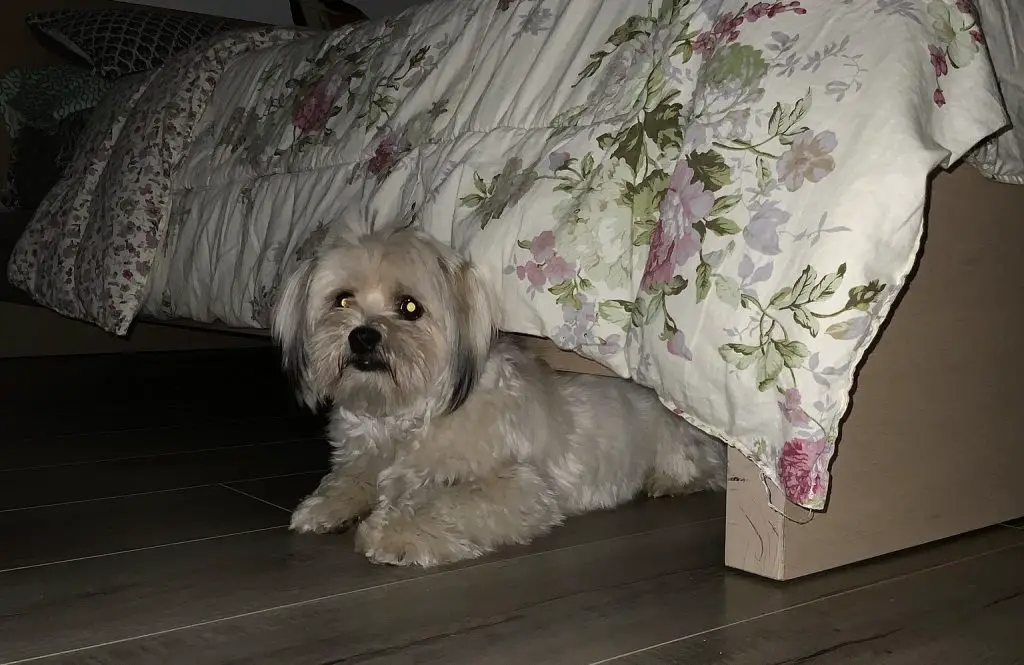
Have you ever wondered why your dog is acting scared after neutering? Neutering is a surgical procedure performed by a veterinarian to remove the reproductive organs of a male dog.
The purpose of neutering is to help reduce the number of unwanted dogs in shelters and also to prevent certain health problems in dogs. Neutering can also help to change a dog’s behavior for the better by reducing or eliminating hormones that can cause aggression.
In most cases, dogs recover quickly from neutering surgery and do not experience any long-term side effects. However, some dogs may act scared or agitated for a short time after the surgery. This is usually due to the anesthesia and is nothing to worry about. If you are concerned about your dog’s behavior after neutering, talk to your veterinarian for more information.
6. Constantly crying after neutering
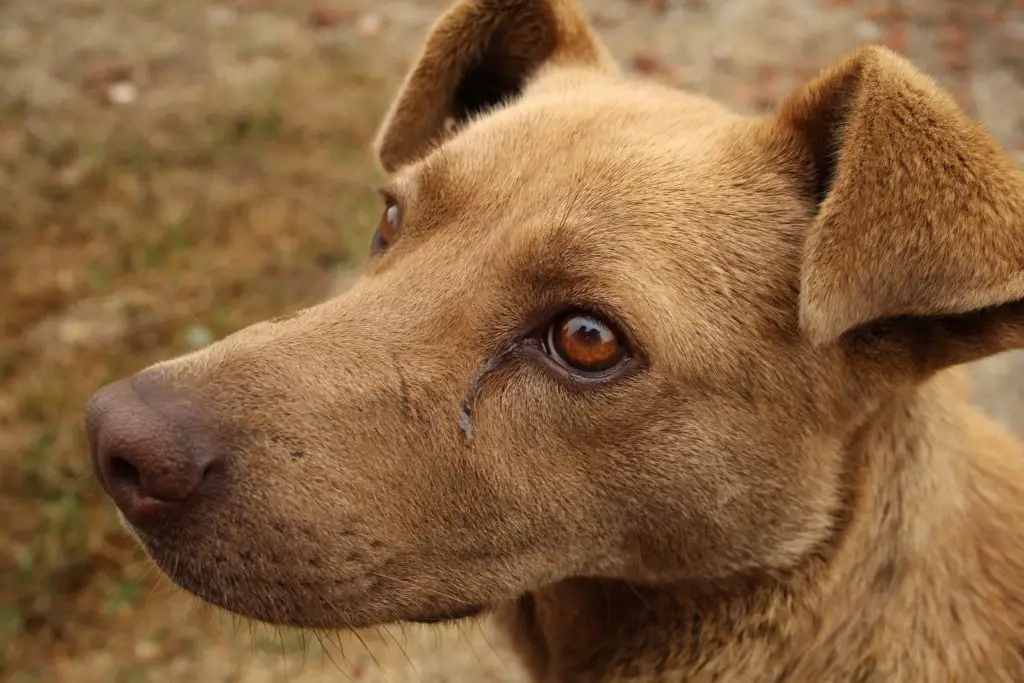
After having a dog neutered, it is not uncommon for owners to notice their pets acting differently. While some dogs may be more subdued, others may become more vocal.
In some cases, a dog may cry constantly after being neutered. This behavior is often the result of discomfort or pain. The incision site can be sore, and the dog may also experience hormonal changes that can lead to anxiety or depression. However, crying should not last more than a few days.
A great way to train a dog not to cry is by teaching him basic obedience commands such as sit, stay, come, and down. Once he learns these commands, you can then begin working on more specific behaviors that you may want him to stop doing such as barking at the mailman or chewing on your shoes.
7. Separation anxiety after neutering

According to the American Society for the Prevention of Cruelty to Animals (ASPCA), separation anxiety is one of the most common behavior problems in dogs.
It can be caused by a number of factors, including changes in routine, moving to a new home, or the loss of a family member. Neutering can also contribute to separation anxiety, as it is a major life change that can be confusing and stressful for dogs.
The good news is that there are a number of things you can do to help your dog adjust to life after neutering and reduce the chances of separation anxiety. First, make sure to provide plenty of attention and affection in the days and weeks following the surgery. Secondly, stick to your normal routine as much as possible, so your dog knows what to expect.
Finally, consider enrolling your dog in a training class, which can help them learn how to cope with separation anxiety and build confidence. With a little patience and guidance, your neutered dog can soon adjust to their new life and overcome any separation anxiety.
8. Barking more after neutering
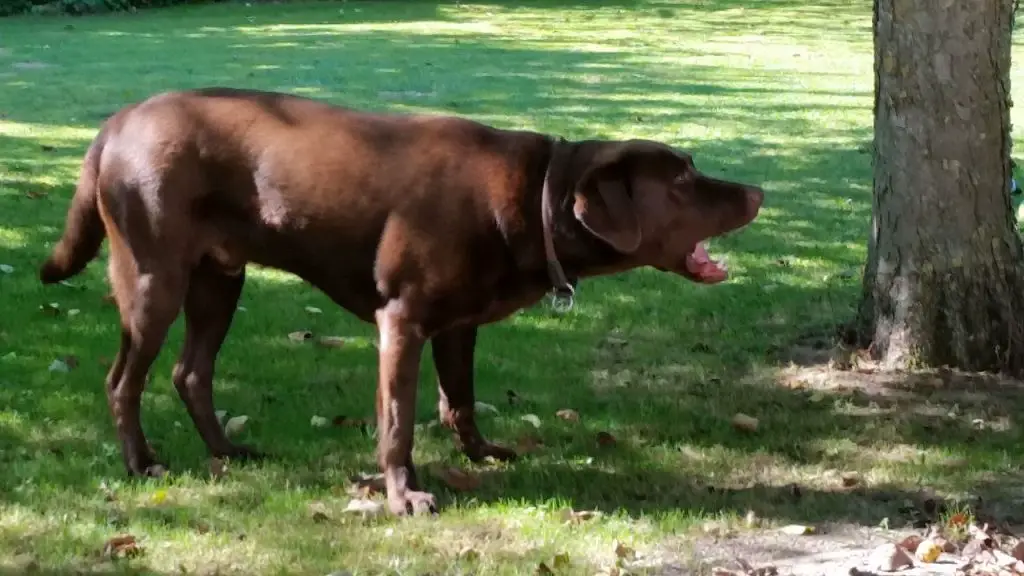
After getting neutered, your dog may bark more. This is because the sex hormones that were once present are no longer there to keep his sexual urges in check. Additionally, the hormones that contribute to his aggressive behavior are also gone.
As a result, your dog may feel more inclined to bark when he feels excited or frustrated. However, this increase in barking should be temporary and should eventually subside as your dog adjusts to his new hormone levels.
Training your dog not to bark can be done by teaching them commands such as “quiet” or “speak.” You can also use positive reinforcement, such as treats, to reward your dog when they obey the command.
How Long After Neutering Will I Start To See Behavioral Changes In My Dog?
You may start to see behavioral changes in your dog within a few days or as long as several months after neutering, and as a veterinarian, I have observed that the timing of behavioral changes can vary depending on individual dog temperament, hormonal levels before neutering, and other factors.
After neutering, some male dogs may experience a decrease in hormone levels, which can lead to changes in behavior.
Some dogs become calmer and more relaxed, while others may become more aggressive or anxious.
The timing of these behavioral changes can vary from dog to dog and can depend on a variety of factors, including the dog’s age, breed, and individual temperament.
In my experience, most dogs show some changes in behavior within a few weeks after neutering, but some dogs may take several months to show any noticeable changes.
It is also important to note that neutering is not a guarantee that a dog’s behavior will change.
While neutering has been shown to reduce certain behaviors in male dogs, such as roaming, mounting, and urine marking, it may not eliminate aggressive or anxious behaviors entirely.
If your dog is showing concerning changes in behavior after being neutered, it is important to consult with your veterinarian to rule out any underlying medical issues and to develop a plan for addressing any behavioral concerns.
What Should I Watch After My Dog Gets Neutered?
After your dog gets neutered, it is important to watch for signs of complications, limit their activity level, and follow post-operative care instructions provided by your veterinarian.
Watch for Signs of Complications
Complications after neutering can include bleeding, swelling, infection, and changes in behavior. To ensure proper healing, monitor your dog closely for any signs of complications and contact your veterinarian immediately if you notice anything concerning.
Limit Activity Level
Excessive activity, including running or jumping, can cause strain on your dog’s incision site, which can slow down the healing process. Keep your dog as calm as possible and limit their activity level for at least the first few days after surgery.
Follow Post-Operative Care Instructions
Your veterinarian will provide you with specific post-operative care instructions, including how to care for your dog’s incision site, when to administer medication, and when to schedule a follow-up appointment. It is essential to follow these instructions closely to ensure proper healing and a full recovery for your dog. If you have any questions or concerns, do not hesitate to contact your veterinarian for guidance.
As a veterinarian, I recommend that pet owners take extra care and attention to ensure their pet heals properly following neutering surgery. Monitor your pet for any signs of complications, limit their activity level, and follow the post-operative care instructions provided by your veterinarian.
Do Dogs Still Have Hormonal Changes After Being Spayed?
Yes, dogs may still experience hormonal changes after being spayed, but the degree and type of changes can vary depending on the individual dog.
Spaying involves the removal of a female dog’s ovaries and uterus, which eliminates their source of estrogen and progesterone.
While the majority of dogs experience a decrease in hormonal activity after being spayed, some may continue to produce small amounts of hormones from other parts of their body, such as the adrenal glands.
This can lead to estrus-like symptoms, such as vaginal bleeding or behavioral changes. Additionally, dogs that have been spayed may experience long-term health effects, such as a decreased thyroid hormone level.
As a veterinarian, I recommend monitoring your dog closely after they are spayed for any signs of hormonal changes. If you notice any unusual symptoms or behaviors, consult with your veterinarian for guidance.
They may suggest hormone-sparing spay procedures or hormone restoration treatments to rebalance hormone levels and improve your dog’s health.
FAQs
Q: How does neutering affect a male dog’s behavior?
A: Neutering can have a significant impact on a male dog’s behavior. It often reduces aggression, roaming, and marking behaviors. It can also decrease the likelihood of certain health issues.
Q: Are there any behavioral changes that I should expect after neutering my dog?
A: Yes, some behavioral changes may occur after neutering your dog. These can include a decrease in aggression, reduced sexual behavior, and an overall calmer demeanor.
Q: Can neutering cause aggression in dogs?
A: Neutering generally reduces aggression in male dogs. However, in some cases, neutering may not completely eliminate aggressive behaviors, especially if the aggression is rooted in other factors such as fear or territoriality.
Q: What are the benefits of neutering my dog?
A: Neutering offers a range of benefits, including a reduction in unwanted behaviors such as aggression, marking, and roaming. It also helps prevent certain health issues and reduces the risk of testicular cancer.
Q: Can neutering affect my female dog’s behavior?
A: Yes, spaying (neutering a female dog) can also have an impact on behavior. It can reduce behaviors such as heat-related restlessness, roaming, and the likelihood of developing certain reproductive-related health issues.
Q: How does neutering affect a male dog’s testosterone levels?
A: Neutering results in a reduction in a male dog’s testosterone levels. This can contribute to a decrease in aggressive behaviors and a reduction in certain health risks.
Q: Can neutering my dog change his personality?
A: Neutering may cause some changes in your dog’s behavior and energy levels, but it is unlikely to drastically change his core personality. The procedure aims to address certain behavioral issues and promote overall well-being.
Conclusion and final thoughts
In conclusion, the decision to neuter your dog is a responsible and important one for their overall health and well-being.
While it may seem strange or concerning to witness certain behaviors after the procedure, such as increased appetite or changes in behavior, these are all normal reactions that should subside within a few weeks.
It is important to keep an eye on your dog during this time and consult with your veterinarian if any concerning or persistent symptoms arise.




